Baja is a motorcycling paradise and I have a bunch of favorite destinations there. Seven of them, to be precise, although truth be told, I like everything in Baja except for Tijuana and maybe La Paz and Loreto. That said, my favorites are:
-
-
- Tecate
- San Quintin
- Cataviña
- Guerrero Negro
- San Ignacio
- Santa Rosalia
- Concepcion Bay
-
Here’s where they are on a map:
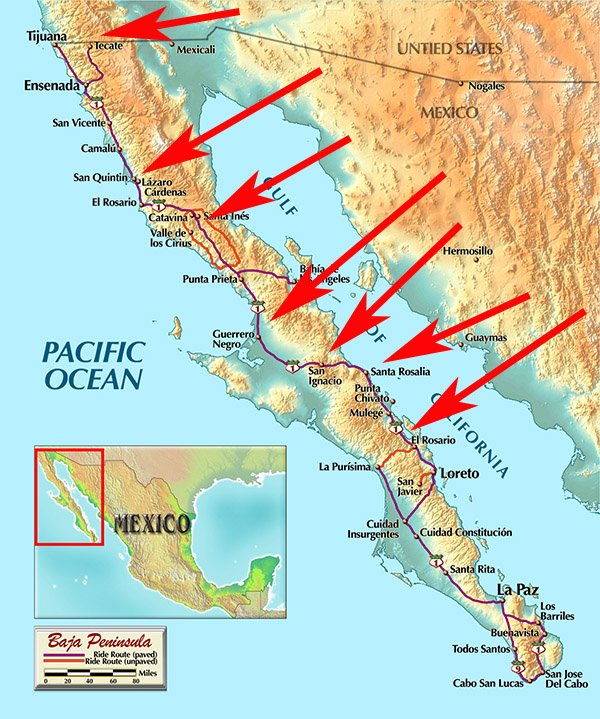
So what’s so great about these places? Read on, my friends.
Tecate
Tecate is the gateway to the middle of northern Baja, and it’s the easiest point of entry. Both Tijuana and Mexicali are too big and too complicated, and the Mexican Customs guys are too official in those bigger cities. Tecate is a friendly place. The last time I picked up a tourist visa in Tecate, the Customs officer tried to sell me salsa he and his family made as a side gig. That’s what the place is like. I love it.
If you’re into fine dining (not as in expensive dining, but just great food), it’s hard to go wrong anywhere in Baja. Tecate has some of the best, from street taco vendors to Malinalli’s to Amore’s. I could spend a week just in Tecate. It’s that good.
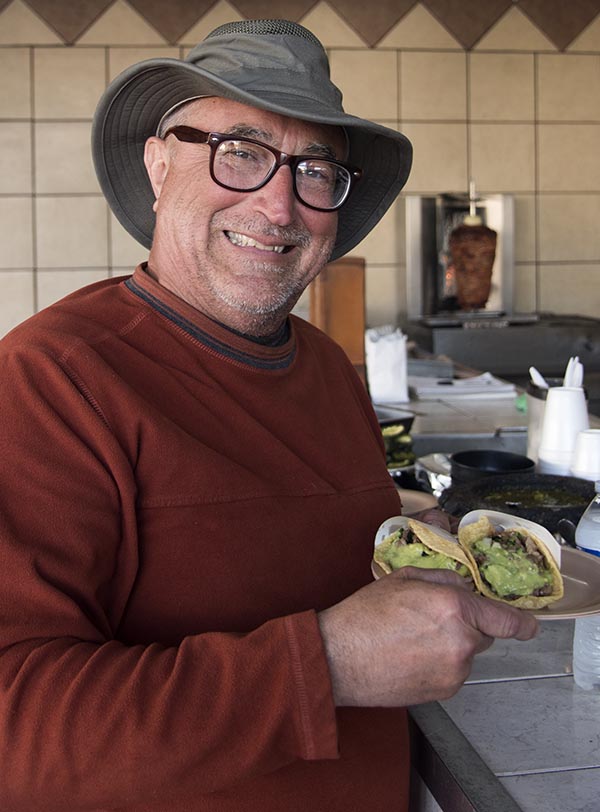
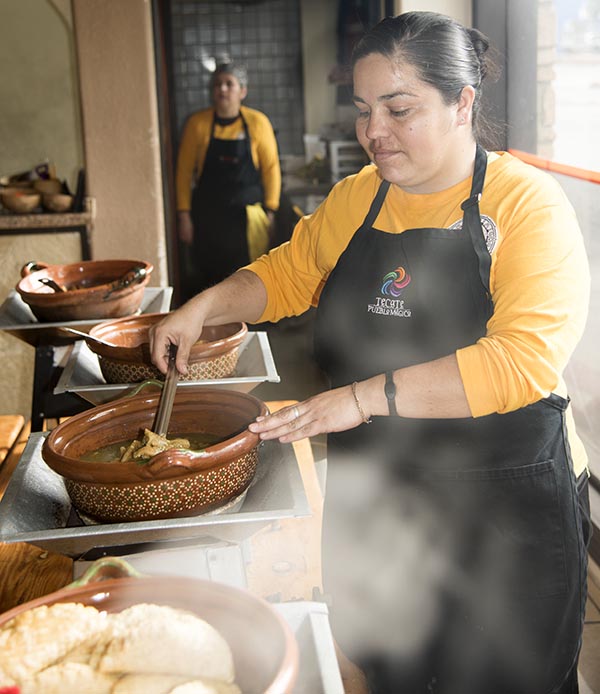
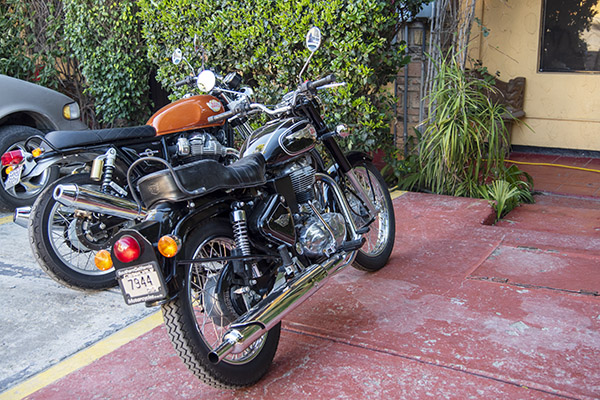
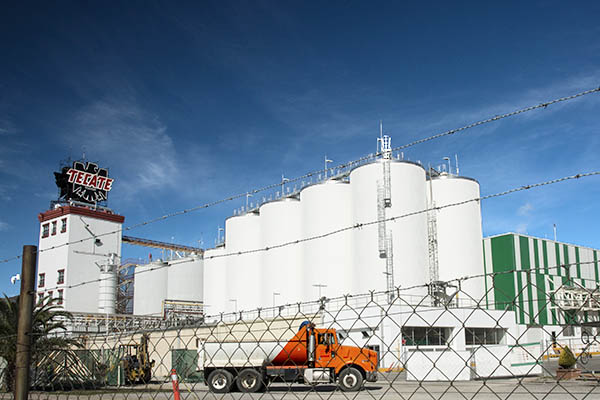
San Quintin
San Quintin is 186.4 miles south of the border on Baja’s Pacific coast. It’s usually a quiet ag town that has a lot of things going for it, including interesting hotels, good food, and Bahia San Quintin. The Old Mill hotel and its associated restaurant, Eucalipto, is my personal favorite. The hotel is about 4 miles west of the Transpeninsular Highway, and what used to be a harrowing soft sand ride to it is now easy peasy…the road is paved and riding there is no longer a test of your soft sand riding skills. The Eucalipto restaurant is second to none.
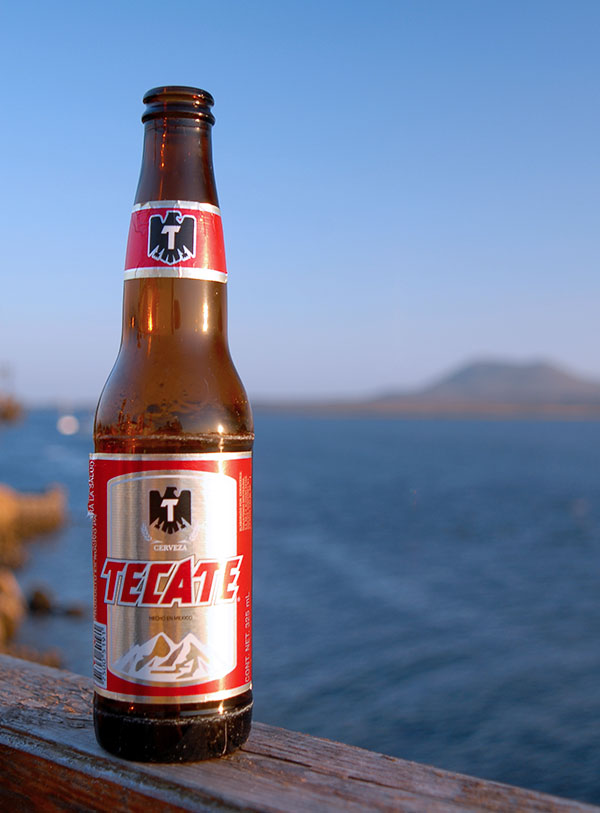
What could be better than an ice cold Tecate overlooking Bahia San Quintin after a day’s riding in Baja? We once saw a California gray whale from this very spot.
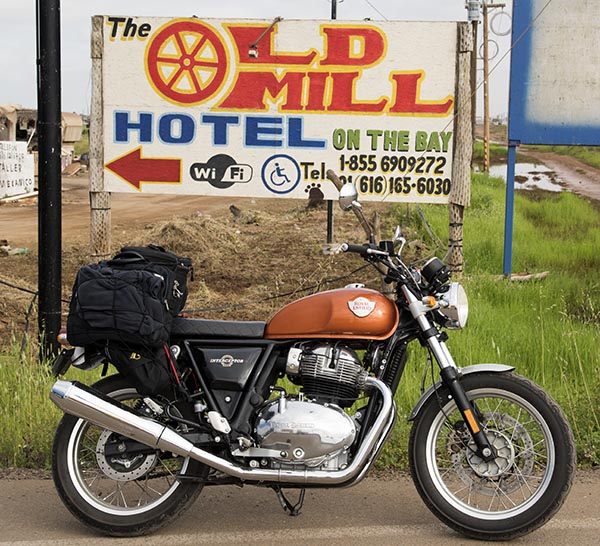
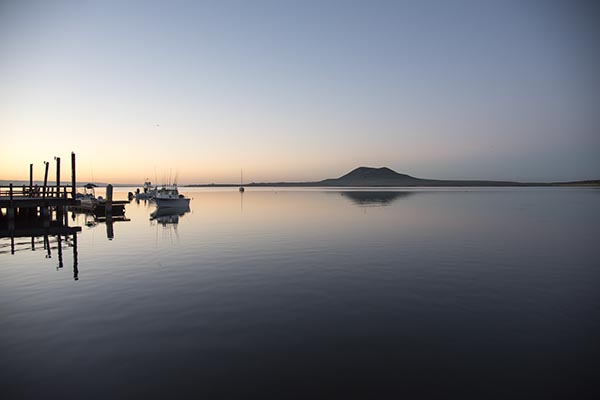
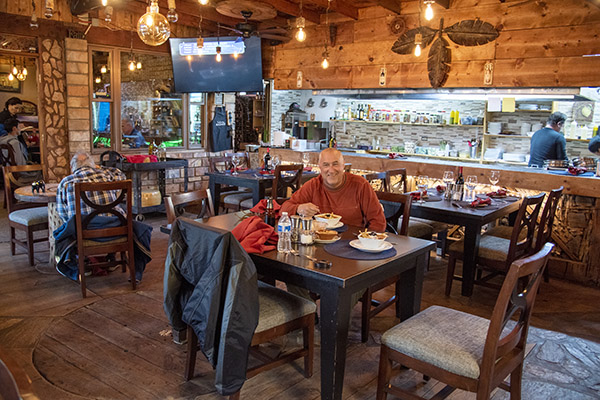
You’ll notice at the top of my scribblings about San Quintin I said it is usually a quiet town. The one exception for us was when there was a labor riot and we were caught in it. The Mexican infantryman about 80 miles north of San Quintin told me the road was closed, but his English matched my Spanish (neither are worth a caca), and without me understanding what I was riding into, he let me proceed. It’s not an experience I would care to repeat. But it’s the only event of its type I ever experienced in Old Mexico, and I’d go back in a heartbeat.
The Cataviña Boulder Fields
Ah, Cataviña. Rolling down the Transpeninsular Highway, about 15 miles before you hit the wide spot in the road that is Cataviña you enter the boulder fields. Other-worldly is not too strong a description, and if the place wasn’t so far south of the border it would probably be used more often by Hollywood in visits to other planets. The boulders are nearly white, they are huge, and the juxtaposition of their bulk with the bright blue sky punctuated by Cardon cactus.
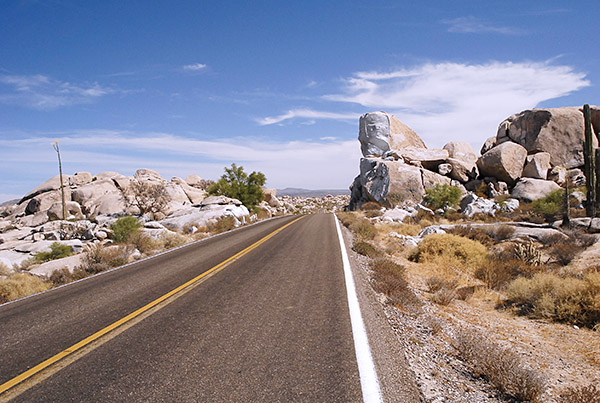
I get a funny feeling every time I enter this part of Baja. Not funny as in bad, but funny as in I feel like I’m where I belong. I once rolled through this region in the early morning hours with my daughter and she told me “you know, it’s weird, Dad. I feel like I’m home.” She understood (as in completely understood) the magic that is Baja.
I like the area and its stark scenery so much that one of my photos became the cover of Moto Baja! I grabbed that shot from the saddle at about 30 mph on a CSC 150 Mustang replica, which I subsequently rode all the way down to Cabo San Lucas (that story is here).
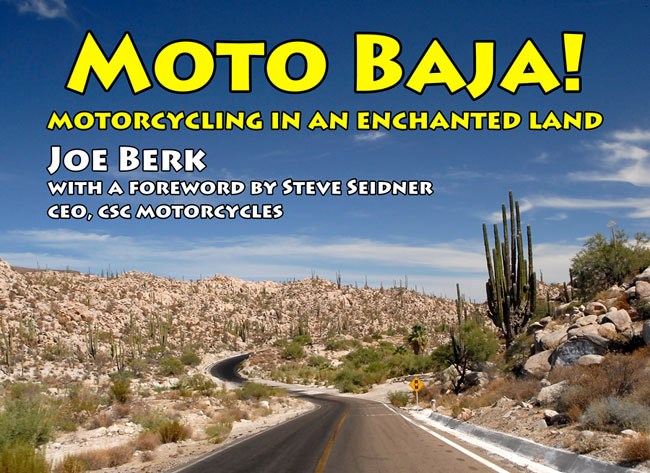
Every time I roll through Cataviña with other riders, the dinner conversation invariably turns to how the boulders formed. When I was teaching at Cal Poly Pomona, I asked one of my colleagues in the Geology Department. He know the area as soon as I mentioned it. The answer? Wind erosion.
Guerrero Negro
The Black Warrior. The town is named after a ship that went down just off its coast. It’s a salt mining town exactly halfway down the peninsula, and it’s your ticket in for whale watching and the best fish tacos in Baja (and that’s saying something). I’ve had a lot of great times in Guerrero Negro. It’s about 500 miles south of the border. You can see the giant steel eagle marking the 28th Parallel (the line separating Baja from Baja Sur) a good 20 miles out, and from there, it’s a right turn for the three mile ride west into town. Malarrimo’s is the best known hotel and whale watching tour, but there are several are they are all equally good. It you can’t get a room at Malarrimo’s, try the Hotel Don Gus.
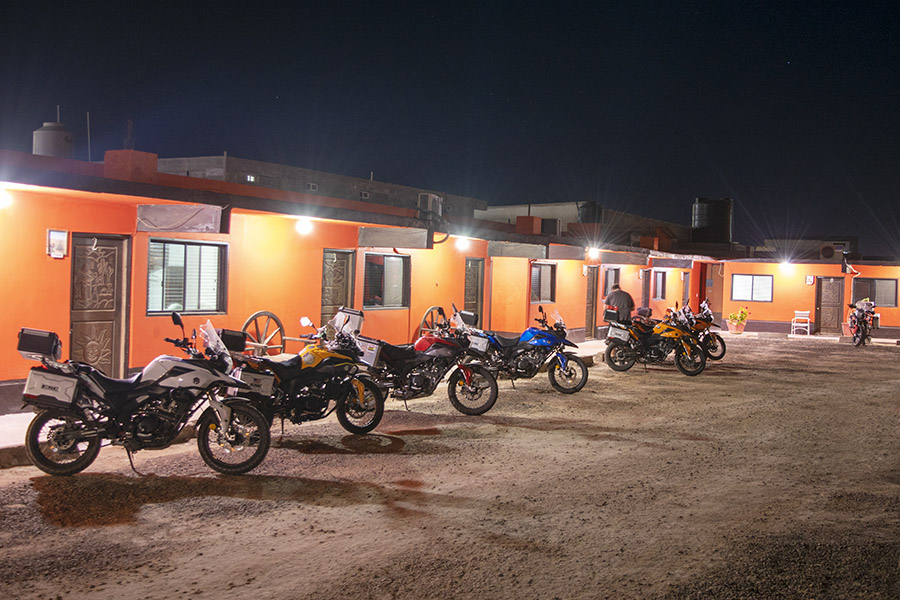
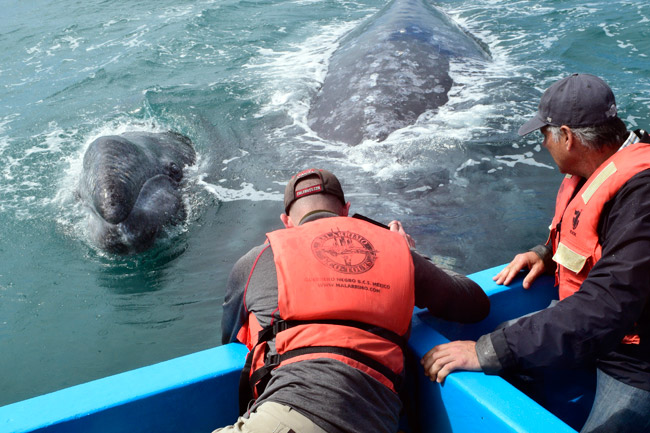
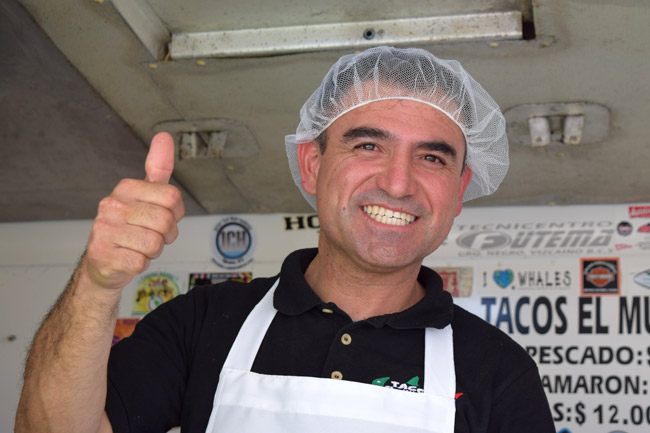
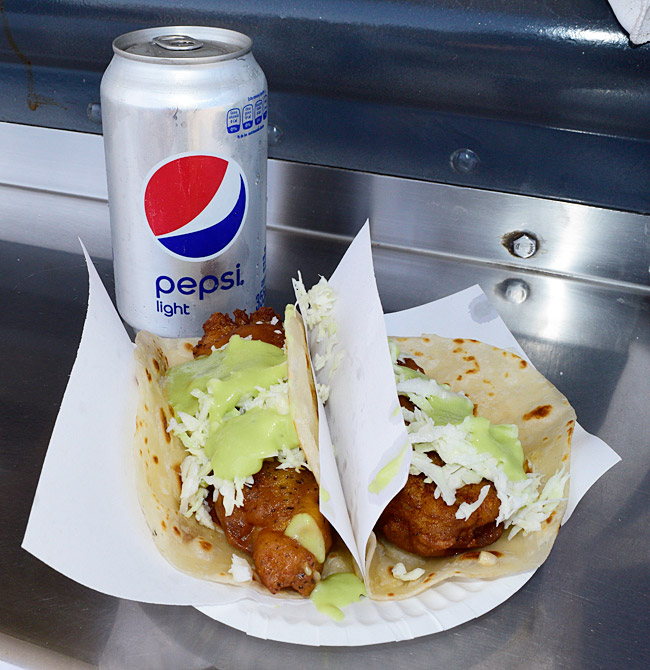
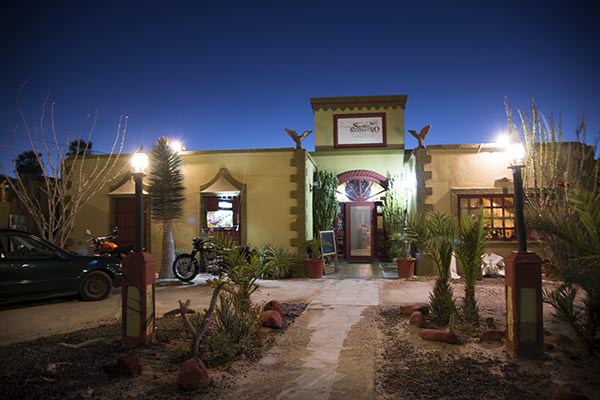
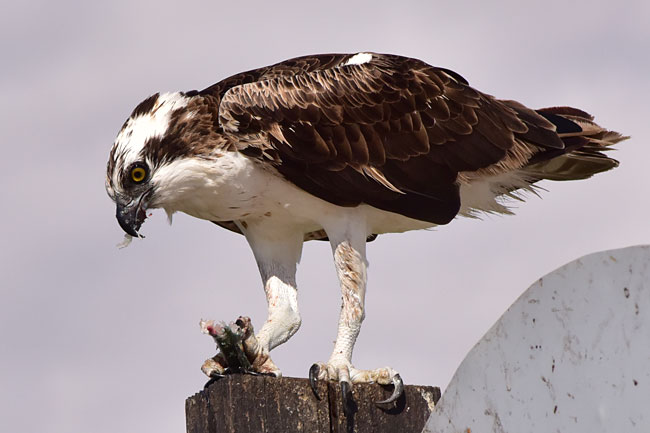
After you leave Guerrero Negro and continue south, the Transpeninsular Highway turns southeast to take you diagonally across the Baja peninsula. About 70 miles down the road (which is about half the distance to the eastern shores of Baja and the Sea of Cortez along Mexico Highway 1) you’ll see the turn for San Ignacio. It’s another one of Baja’s gems.
San Ignacio
San Ignacio is an oasis in the middle of the desert that forms much of Baja. The Jesuits introduced date farming to the region hundreds of years ago, and it’s still here in a big way. Leave Guerrero Negro, head southeast on Mexico Highway 1, and 70 miles later you run into a Mexican Army checkpoint, a series of switchbacks through a lava field, and when you see the date palms, turn right.
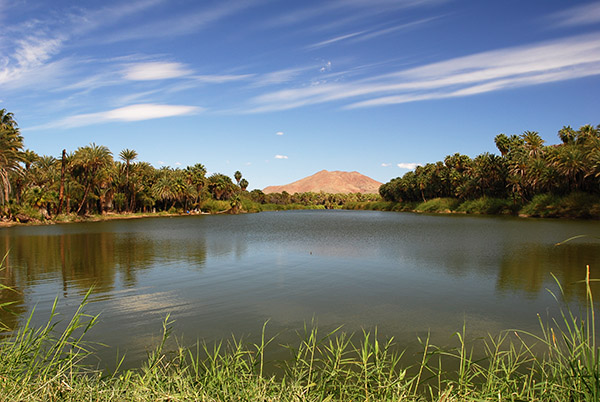
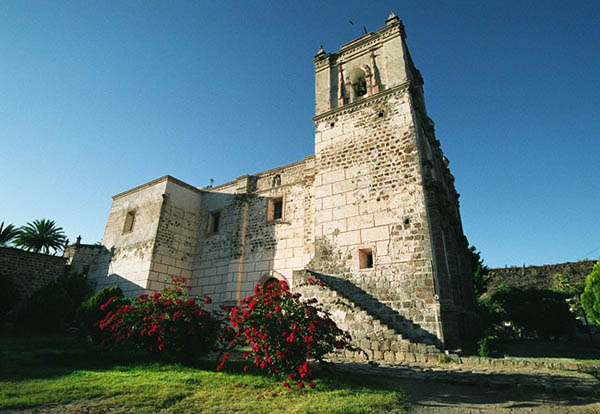
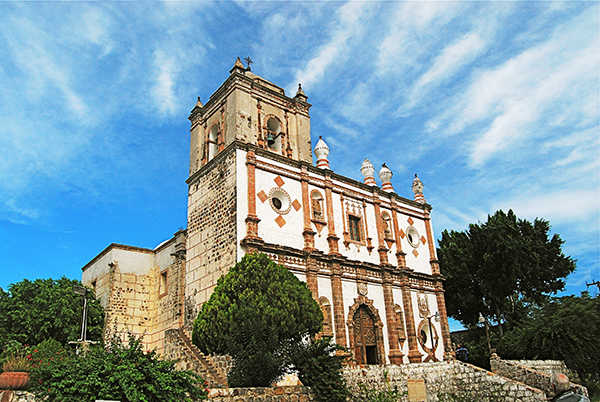
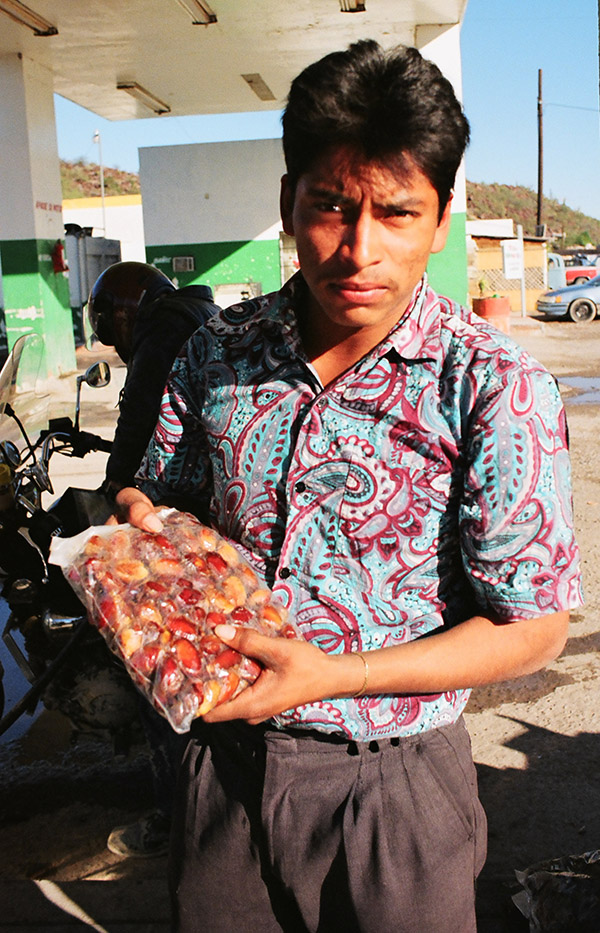
San Ignacio has a town square that’s right out of central casting, there’s a little restaurant that serves the best chile rellenos in all of Mexico (I’m not exaggerating), and the place just has a laid back, relaxing feel about it.
Santa Rosalia
You know, this town is another one of Baja’s best kept secrets. As you travel south on Highway 1, San Ignacio is the first town you encounter after traveling diagonally across the peninsula. Folks dismiss it because it’s an industrial town, but they do so in ignorance. There’s a lot of cool stuff in this place.
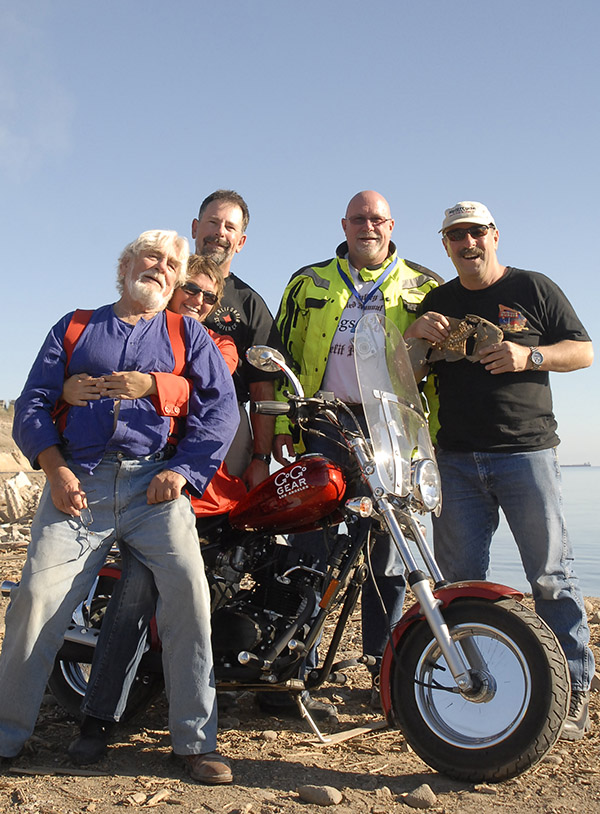
One of the things that’s unique about Santa Rosalia is the all-wooden architecture. The town was originally built by a French mining company (Boleo) and they built it they way they did in France. Like the Hotel Frances, which sits high on a mesa overlooking the town and the Sea of Cortez. I love staying there.
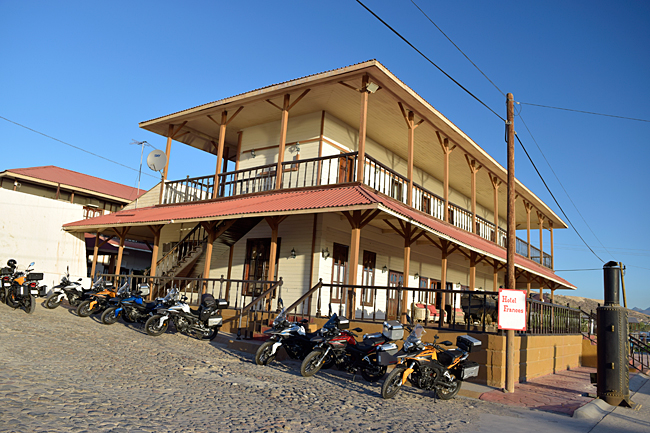
There’s a cool mining musuem a block or two away from the Frances, and it’s worth a visit, too.
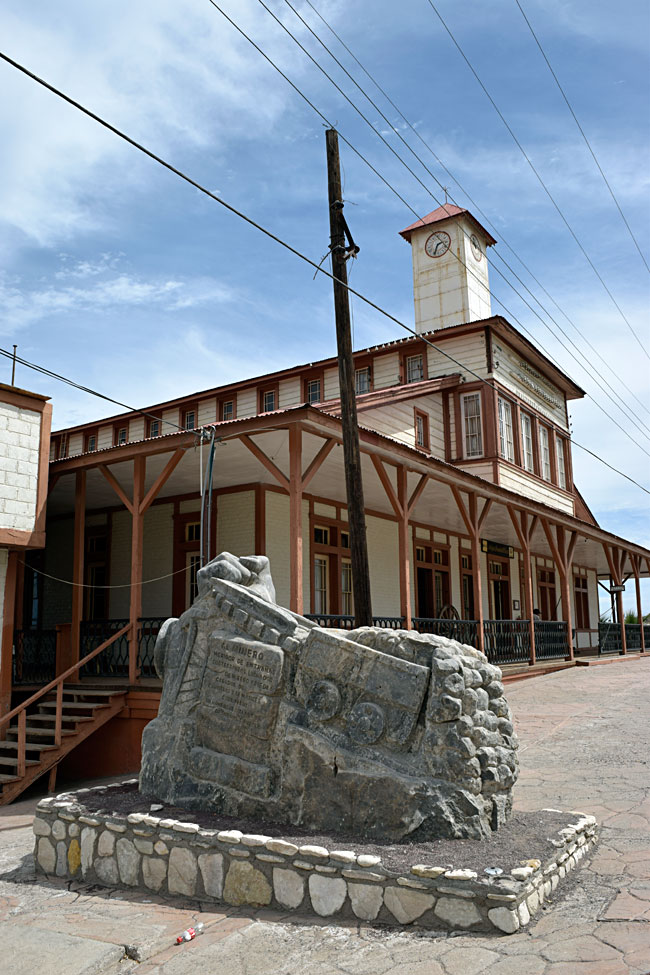
There are many cool things in Santa Rosalia, and one of the best is the Georg Eiffel church. It was designed by the same guy guy who did the Eiffel town.
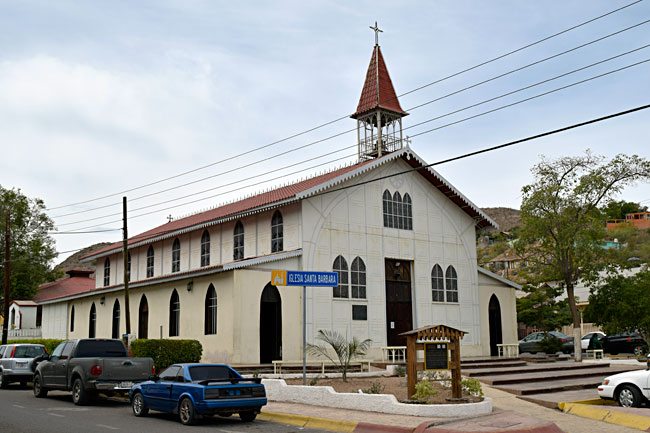
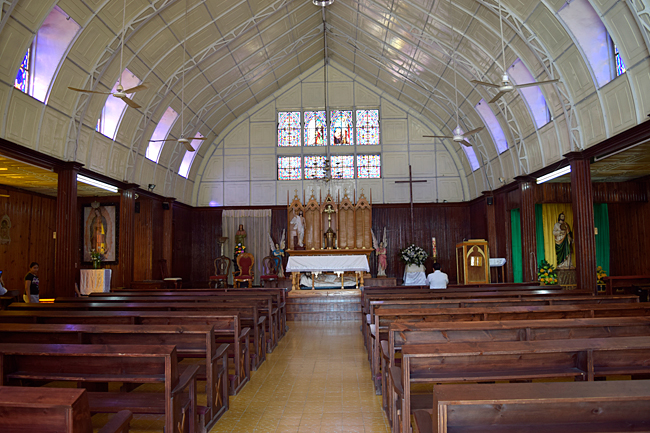
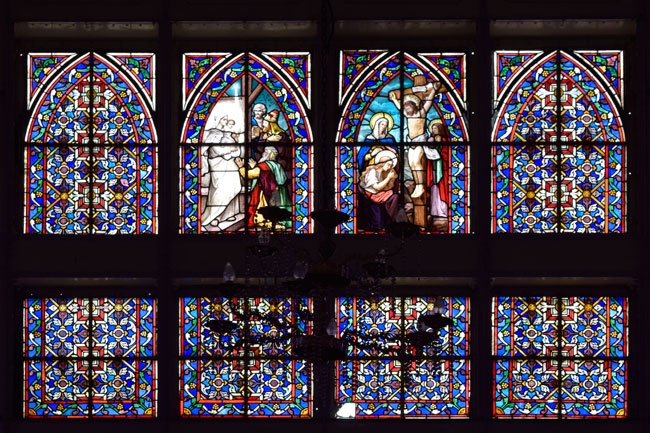
I’ve heard people dismiss Santa Rosalia as a gritty, industrial place not worth a stop. Trust me on this: They’re wrong. It’s one of my favorite Baja spots.
Bahía Concepción
Concepción Bay is easily the most scenic spot in Baja. It’s just south of Mulege (another delightful little town, and the subject of an upcoming ExNotes blog). Bahía Concepción runs for maybe 20 miles along the eastern edge of the Baja peninsula. I’ve seen whales from the highway while riding along its edge, the beaches are magnificent, and the photo ops just don’t stop. The contrast between the mountains and Cardon cactus on one side and the pelicans diving into bright green water is view from the saddle you won’t soon forget.
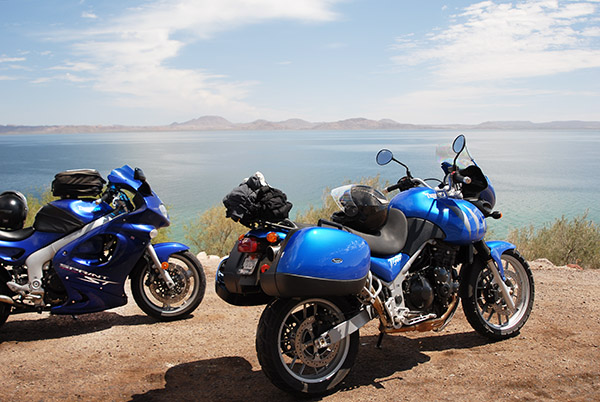
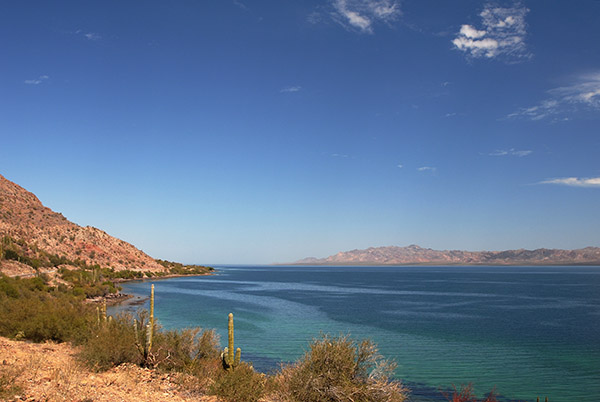
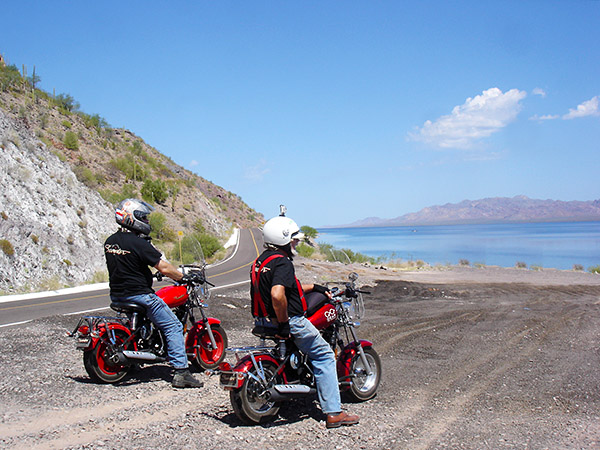
So there you have it: My take on seven favorite spots in Baja? How about you? Do you have any favorite Baja destinations? Let us know here in the comments sction!
More on Baja? You bet!

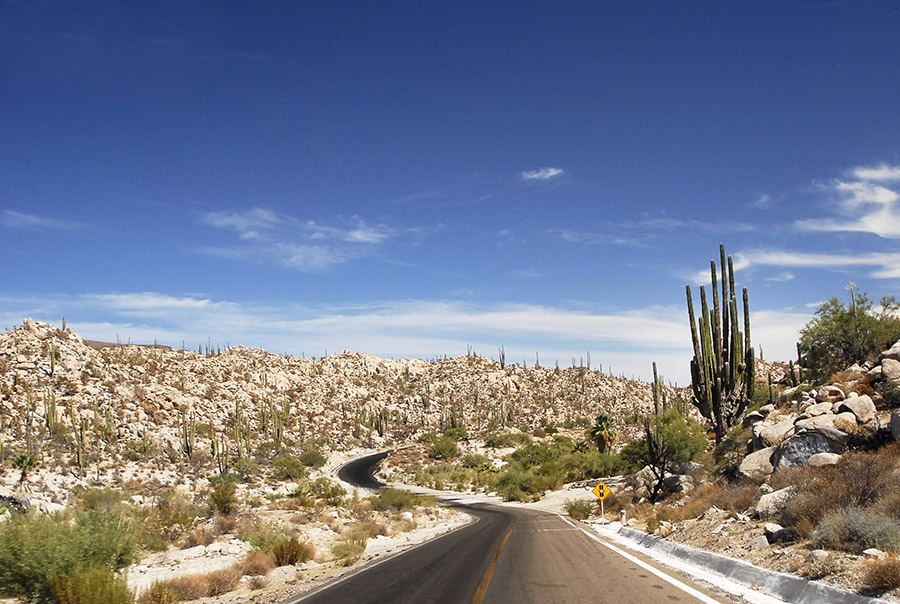
Baja looks like the perfect place for cruising a motorcycle. I don’t see many people in the pictures, which is a good thing.
It is my favorite place in the world, Marcus.
It’s no longer uncommon to see motorcycle groups visiting Baja these days. Highway 5 south of San Felipe was dirt until about 4 years ago, and once the paving was complete, many more motorcycle groups began visiting Baja, including Mexican motorcyclists from the mainland. These pictures bring back some great memories. I remember the early days when the children would run to the side of the highway to see a motorcycle come by because they were so rare. About the only time that they ever saw a motorcycle was during the Baja 1000 and they thought that all motorcyclists were racers. Tecate beer had the market in Baja, and was about the only beer that you could get anywhere on the peninsula. Cheap too!!! Although Tecate isn’t considered a high quality beer, I still enjoy it because it tastes like Baja to me.
We had some good adventures down there, John.
Tecate is still my favorite beer.
Thanks for commenting.